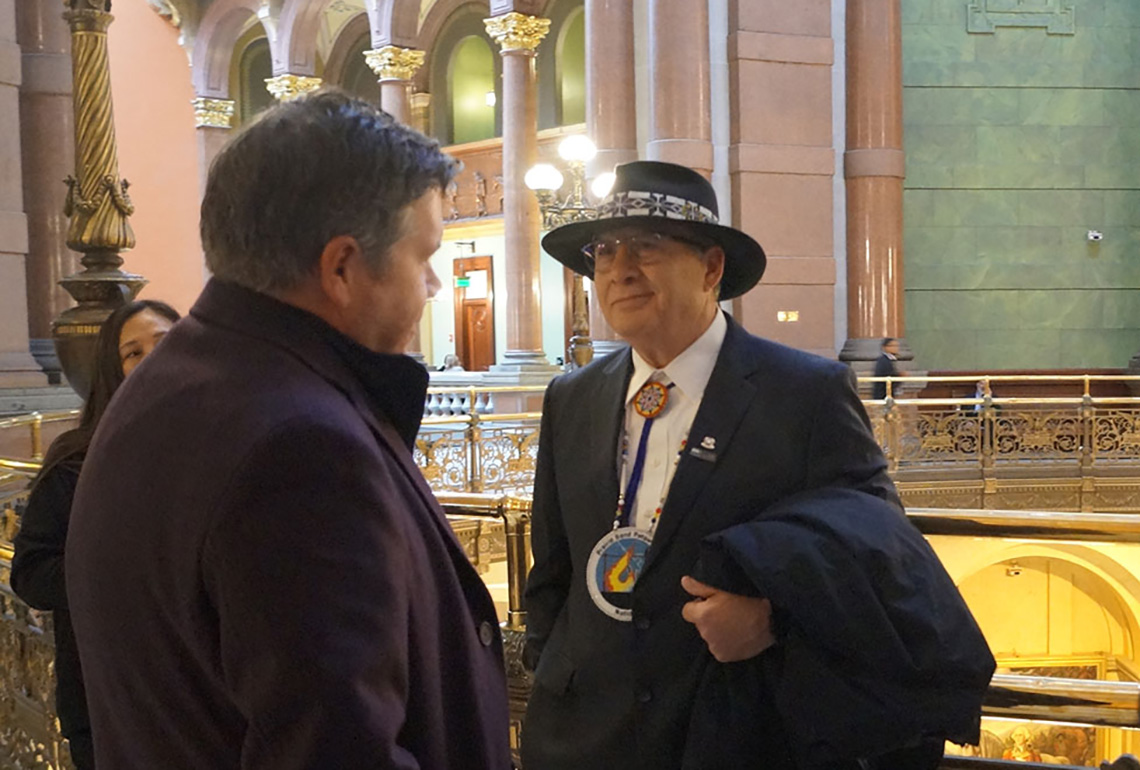
- Details
- By Chez Oxendine, Tribal Business News
The Prairie Band Potawatomi Nation could soon receive 1,500 acres of its land back following passage of legislation during a Jan. 7 lame duck session of the Illinois legislature.
The state House approved SB 867, which would transfer Shabbona Lake State Park to the Prairie Band Potawatomi. The bill now heads to Illinois Gov. JB Pritzker for his signature.
The land transfer hinges on an agreement that the tribe continue to operate the property as a park, still open to the public. Final details will be established in a forthcoming land management agreement between the state and tribe.
Prairie Band Potawatomi Chairman Joseph “Zeke” Rupnick said the bill’s passage was a “meaningful step” toward righting a historic old wrong. The land was originally part of the tribe's 1,280-acre reservation in northern Illinois. During Chief Shab-eh-nay's visit to family in Kansas, the land was unlawfully auctioned off, violating federal requirements for Congressional approval of tribal land sales. The tribe has sought to reclaim the land for nearly two centuries.
“This moment reflects the power of collaboration and the shared desire to build a future rooted in justice and respect. Illinois has shown true courage and vision by leading the way in the Land Back movement, demonstrating that healing and reconciliation are possible,” Rupnick wrote in a statement.
SB 867’s passage comes after a similar bill from the Illinois House, HB 4718, died on the vine in May last year. It also follows the trust acquisition of 130 acres of land by the tribe in April 2024, marking the only such reservation land in the entire state. The tribe first purchased that acreage in 2006 and began seeking trust status soon after.
State Rep. Will Guzzardi (D-Chicago) said during a speech on the House floor, ahead of the vote, that the bill was an example of looking the past “square in the eye.”
“I…don’t think that the answer is to turn a blind eye to the violence and the ugliness of our past, to rewrite the history books, to gloss over the unpleasant parts,” Guzzardi said, per the Capitol News Illinois. “I think the answer is to look our past square in the eye, the good stuff and the bad stuff, and when we recognize that we’ve done wrong as a nation, to see it, to own it, and to find some way where we can make it right.”
Can we take a minute to talk about tribal sovereignty?
Our mission draws from the warrior spirit that has sustained Indigenous peoples for generations — the same spirit that drives us to stand guard over tribal rights through relentless investigation and fearless reporting.
Sovereignty isn't just a concept – it's the foundation of Native nations' right to govern, protect our lands, and preserve our cultures. Every story we publish strengthens tribal sovereignty.
Unlike mainstream media, we center Indigenous voices and report directly from Native communities. When we cover land rights, water protection, or tribal governance, we're not just sharing news – we're documenting our living history and defending our future.
Our journalism is powered by readers, not shareholders. If you believe in the importance of Native-led media in protecting tribal sovereignty, consider supporting our work today.
